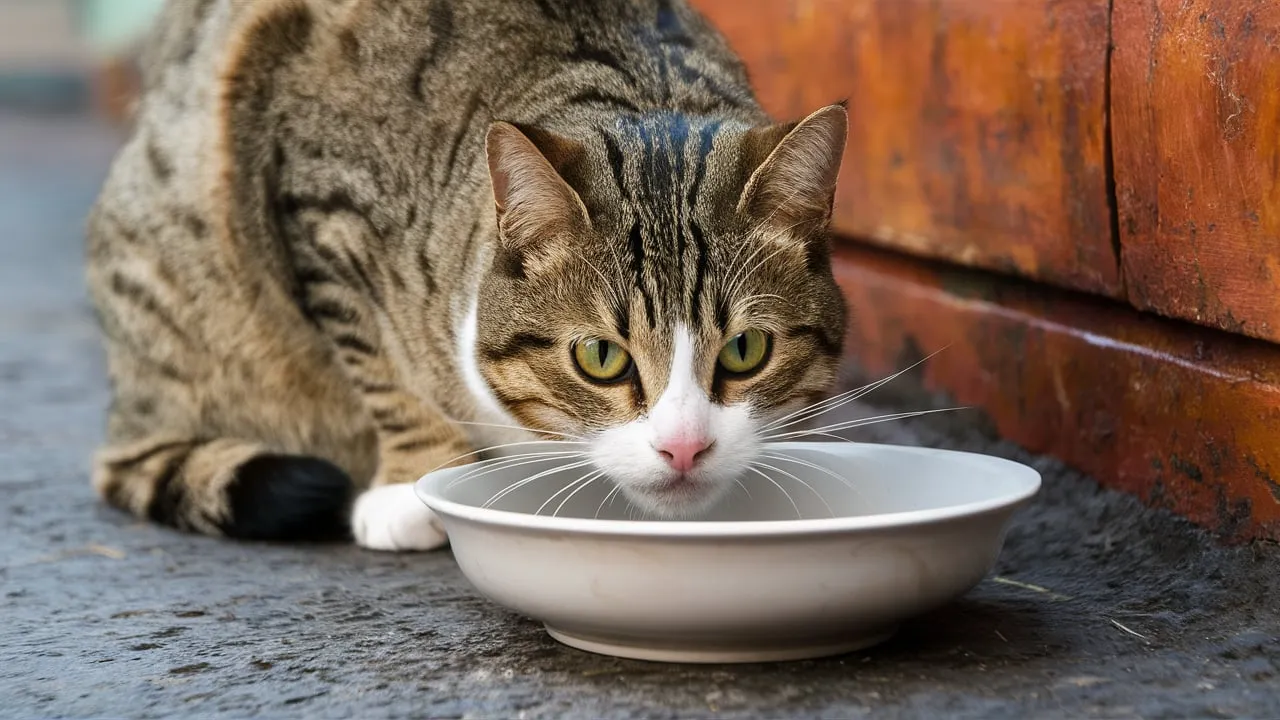Water is essential for life, and this is especially true for cats. As a feline parent, you know that your cat needs water to stay hydrated and healthy. But how long can a cat survive without water? This is a question that many cat owners worry about, especially if their cat is ever lost or accidentally locked out of the house. Please follow this article with In For Cat.

How Long Can Cats Survive Without Water?
The answer to this question depends on several factors, including the cat’s age, health, and the surrounding environment. However, in general, cats can survive for about 3-4 days without water, but their health will deteriorate rapidly during this time.
Why Water Is So Important for Cats
Cats need water for many essential bodily functions, including:
Regulating body temperature: Water helps to cool the body down through sweating and panting.
Digesting food: Water helps to break down food and move it through the digestive system.
Transporting nutrients: Water carries nutrients throughout the body.
Flushing out toxins: Water helps to remove waste products from the body.
Signs of Dehydration in Cats
If your cat is dehydrated, you may notice some of the following signs:
- Lethargy: Your cat may seem sluggish and less active.
- Loss of appetite: Your cat may not be interested in eating.
- Dry nose: Your cat’s nose may feel dry and crusty.
- Sunken eyes: Your cat’s eyes may appear sunken in their sockets.
- Increased thirst: Your cat may drink more water than usual.
- Constipation: Your cat may have difficulty passing stool.
- Skin tenting: If you gently pinch your cat’s skin, it may stay tent up for a few seconds before returning to its normal position.
What Happens If a Cat Doesn’t Get Water?
If a cat is deprived of water for an extended period, it can lead to serious health problems, including:
Kidney failure: Dehydration can put a strain on the kidneys, leading to kidney failure.
Dehydration: This can lead to a variety of health problems, including constipation, lethargy, and even death.
Electrolyte imbalance: Dehydration can cause an imbalance of electrolytes in the body, which can lead to a variety of health problems.
Heatstroke: Dehydration can make it difficult for cats to regulate their body temperature, which can lead to heatstroke.
How to Prevent Dehydration in Cats
There are several things you can do to prevent your cat from becoming dehydrated:
Provide fresh water at all times: Make sure your cat has access to fresh, clean water at all times.
Use multiple water bowls: Place water bowls in different locations around your home, especially in areas where your cat spends a lot of time.
Offer different types of water bowls: Some cats prefer to drink from fountains or other types of water bowls.
Consider a water fountain: Water fountains can encourage cats to drink more water because the running water is more appealing.
Add water to your cat’s food: You can add a little water to your cat’s dry food to make it more appealing and help them stay hydrated.
Monitor your cat’s water intake: Pay attention to how much water your cat is drinking and if you notice a decrease, consult your veterinarian.
What to Do If Your Cat Is Dehydrated
If you think your cat is dehydrated, it is important to seek veterinary attention immediately. Your veterinarian can assess your cat’s hydration level and provide appropriate treatment.
Frequently Asked Questions (FAQs)
Q: How much water should my cat drink per day?
A: The amount of water your cat needs will vary depending on its age, size, and activity level. However, a general rule of thumb is that cats should drink about 1/2 ounce of water per pound of body weight per day.
Q: Can cats drink too much water?
A: While it is rare, cats can drink too much water, which can lead to water intoxication. Symptoms of water intoxication include vomiting, diarrhea, lethargy, and seizures. If you suspect your cat is drinking too much water, consult your veterinarian.
Q: What are some signs that my cat is drinking enough water?
A: You can tell if your cat is drinking enough water by observing their urine output. If your cat is urinating regularly and the urine is clear or light yellow, then they are likely drinking enough water.
Q: What are some tips for encouraging my cat to drink more water?
A: Here are some tips for encouraging your cat to drink more water:
- Use a water fountain: Cats are often attracted to running water.
- Place water bowls in different locations: Make sure your cat has access to water in different areas of your home.
- Offer different types of water bowls: Some cats prefer to drink from fountains or other types of water bowls.
- Add water to your cat’s food: You can add a little water to your cat’s dry food to make it more appealing and help them stay hydrated.
Conclusion
Water is essential for the health and well-being of your cat. By making sure your cat has access to fresh, clean water at all times and monitoring their water intake, you can help to prevent dehydration and keep your feline friend healthy and happy.

Related Post
What is Physical Traits of Cats with Tiny Ears?
Exploring the Allure of the Tabby Siamese Cat
Can I Put Neosporin On My Cat? A Guide To Safe Topical Treatments